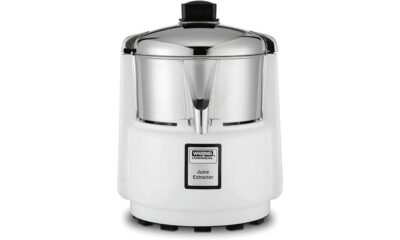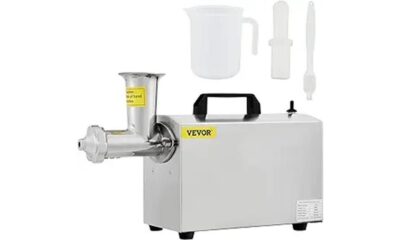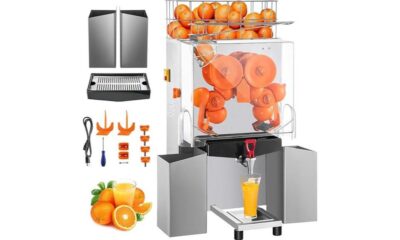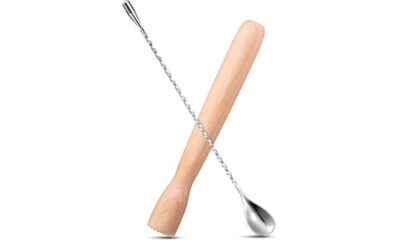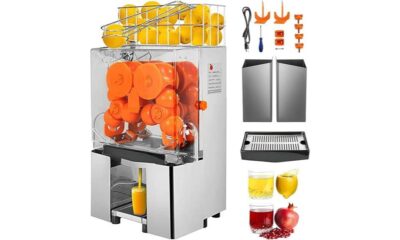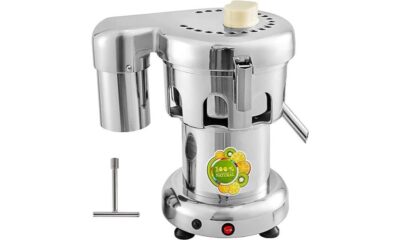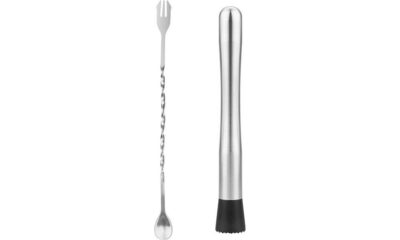Coffee Roasting
What Does It Take To Start Coffee Roasting Business
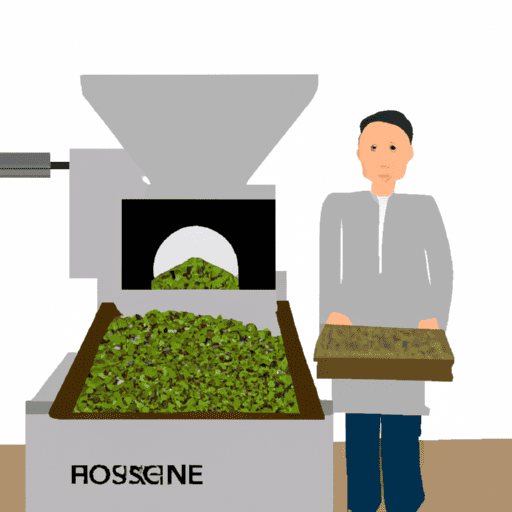
Starting a coffee roasting business is an exciting venture that requires passion, dedication, and hard work. As someone who loves coffee, I have always dreamed of owning my own coffee shop where I can roast beans to perfection and serve customers delicious cups of joe.
However, starting a coffee roasting business is not as easy as it seems. It requires careful planning, research, and execution.
In this article, I will share with you what it takes to start a successful coffee roasting business. From understanding the industry to sourcing high-quality beans and choosing the right equipment, we will explore all the important aspects of starting a coffee roasting business.
Whether you’re an experienced barista or someone who simply loves coffee and wants to turn their passion into a profitable business, this guide will provide you with all the information you need to get started on your journey towards becoming a successful coffee entrepreneur.
So grab your favorite cup of java and let’s dive in!
Key Takeaways
- Starting a coffee roasting business requires passion, dedication, and careful planning.
- Understanding the coffee industry, defining business goals, and pinpointing the target market are essential for success.
- Sourcing high-quality beans, choosing the right equipment, and experimenting with roasting techniques are crucial for producing delicious coffee.
- Developing a strong brand identity, effective marketing strategies, and excellent customer service are important for standing out in a competitive industry and building a loyal customer base.
Understanding the Coffee Industry
If you’re thinking about starting a coffee roasting business, it’s crucial to understand the ins and outs of the industry! One important aspect to consider is the types of coffee beans that you’ll use.
There are many varieties available, each with its own unique flavor profile. Some popular options include Arabica, Robusta, and Liberica. It’s essential to research and experiment with different types of beans before choosing the ones that’ll be best suited for your business.
Another critical factor in the coffee industry is fair trade and sustainability. Consumers are becoming increasingly conscious about where their products come from and how they’re sourced.
As a coffee roaster, it’s important to ensure that your beans are ethically sourced and produced in a way that minimizes harm to both people and the environment. By prioritizing fair trade and sustainability, you’ll not only be doing your part in making the world a better place, but you’ll also attract customers who share these values.
Understanding the coffee industry is key when starting a roasting business. You must consider which types of beans will work best for your product line while also making sure that they come from sources that prioritize fair trade practices and sustainability efforts.
By taking these factors into account at the outset of your venture, you’ll set yourself up for success as you move onto defining your business goals.
Defining Your Business Goals
As I’m embarking on my journey to start a coffee roasting business, identifying my target market, creating a solid business plan, and developing financial projections are crucial in achieving success.
Understanding who my ideal customer is will help me tailor my products and marketing efforts to meet their needs.
Crafting a comprehensive business plan won’t only provide direction for my company but also attract potential investors or lenders.
Lastly, projecting financials such as startup costs, revenue streams, and expenses will give me an idea of the feasibility of my business idea and ensure its long-term sustainability.
Identifying Your Target Market
Pinpointing your target market is crucial in starting a coffee roasting business, as it allows you to connect with customers who share your passion and values. Defining demographics and targeting preferences will help you identify the specific group of people who are most likely to be interested in your product.
You can use factors such as age, location, income level, interests, and lifestyle choices to create customer profiles that guide your marketing efforts. For instance, if you want to cater to health-conscious individuals who value organic products, then you can focus on offering specialty blends made from sustainably sourced beans. Alternatively, if you want to appeal to busy professionals who need a quick caffeine fix on-the-go, then you might consider offering pre-ground coffee packs that are conveniently packaged for travel.
By identifying your target market early on in the process of starting a coffee roasting business, you can tailor your offerings to meet their needs and build a loyal customer base. Identifying your target market is just one aspect of creating a successful coffee roasting business plan. By understanding what your customers want and how they prefer their coffee served or roasted, it will help steer the direction of the company’s future success.
Creating a Business Plan
You’ll need to craft a solid business plan that serves as the foundation for your coffee roasting venture, much like a well-built home requires a sturdy frame.
Before you dive into the details of creating your business plan, it’s important to conduct thorough market research and competition analysis. This will help you gain insight into your potential customers’ wants and needs, as well as identify any gaps in the market that your business can fill. By understanding what sets you apart from other coffee roasters in your area or online, you can develop a unique selling proposition that will attract customers.
Once you’ve completed this initial research, it’s time to start putting together the nuts and bolts of your business plan. Your plan should include information on your company structure, products and services offered, marketing strategies, financial projections, and more.
By outlining these key components in detail, you’ll be able to make informed decisions about how best to grow and scale your business over time. With a strong foundation in place through careful planning and research efforts, you’ll be better equipped to create a thriving coffee roasting business that stands out from the crowd.
As mentioned earlier, it’s crucial to have financial projections included in your overall strategy for success.
Financial Projections
To ensure the long-term success of your coffee roasting business, it’s crucial to include detailed financial projections in your plan. These projections will help you understand the expected costs and revenue associated with running your business. A cost analysis is one of the essential components of financial projections that can help you determine how much money you need to start and run your coffee roasting business.
In addition to a cost analysis, projected revenue is another vital aspect of financial projections. This projection helps determine how much income you expect to generate from sales over time. By forecasting your anticipated revenue and expenses, you can create a realistic budget for your coffee roasting business. To provide an example of what this could look like, take a look at this table below:
| Expense | Monthly Cost |
|---|---|
| Rent | $2,000 |
| Utilities | $500 |
| Equipment | $1,500 |
| Beans | $1,200 |
With these figures in mind, we can project that our monthly expenses will equal $5,200. By estimating our projected monthly revenue based on market research and sales data from similar businesses in our area or industry, we can confidently forecast whether we’ll have enough cash flow to sustain operations over time. Once you’ve created these financial projections for your coffee roasting business, it’s important to turn your attention towards sourcing high-quality beans without breaking the bank.
Sourcing High-Quality Beans
If you want to brew up a successful coffee roasting business, it all starts with bean selection. Choosing the right beans is crucial because it directly affects the taste and aroma of the final product. You should always aim for high-quality beans that are fresh, aromatic, and flavorful.
When sourcing your beans, make sure to have a thorough understanding of their origin and processing methods. This knowledge will help you determine which roasting techniques will bring out the best flavors in each type of bean. Experimentation is key when it comes to finding the perfect roast for each variety of coffee.
In addition to selecting high-quality beans and experimenting with different roasting techniques, choosing the right equipment is also important. From grinders to roasters, there are many tools that can affect the quality of your coffee. In my experience, investing in top-of-the-line equipment has paid off in terms of producing consistent and delicious coffee blends that keep customers coming back for more.
Choosing the Right Equipment
Opting for high-quality equipment is crucial in ensuring that your coffee blends maintain consistency and deliciousness, so it’s important to carefully choose the right tools for your roasting venture.
When selecting equipment, take into consideration the size of your operation, your budget, and the types of beans you will be roasting. Roasters come in different sizes and designs to accommodate various batch sizes and roasting techniques.
Another key factor to consider when choosing equipment is the type of coffee bean varieties you plan to roast. Different beans have different moisture levels, densities, and flavors that require certain types of heat transfer methods such as convection or conduction. Additionally, some beans may require a longer or shorter roasting time than others. Therefore, it’s essential to find a roaster that can handle the variety of beans you plan on using.
Investing in quality equipment may seem like a significant expense upfront but doing so will save you money in the long run by ensuring durability and efficiency.
As you begin to perfect your roasting technique with top-of-the-line tools at hand, customers will notice a difference in taste and quality when they sample your coffee blends. With excellent equipment at your disposal, it’s now time to focus on developing your brand without losing sight of what makes each cup unique – its flavor profile!
Developing Your Brand
Choosing the right equipment is crucial in starting a successful coffee roasting business. However, it’s not enough to just have the best machines and tools in the industry. To make your brand stand out, you need to develop a strong brand identity.
Brand identity encompasses everything that makes your brand unique – from the logo, packaging design, product offerings, and overall messaging. It’s what sets you apart from other coffee roasters out there. Developing a strong brand identity takes time and effort, but it’s an essential step towards building a loyal customer base.
To differentiate your brand from others in the market, here are some tips to keep in mind:
-
Define your target audience: Knowing who you’re catering to will help shape your branding decisions.
-
Emphasize quality: If you’re confident in the quality of your products, make sure this message is conveyed through your branding.
-
Be consistent: Make sure all aspects of your branding – from color schemes to messaging – are consistent across all channels.
Developing a strong brand identity will set the tone for how customers perceive and interact with your business. In turn, this can lead to increased sales and customer loyalty. But having a great brand isn’t enough; you also need effective marketing strategies to get the word out about what you offer.
Now that we’ve covered developing a strong brand identity as part of starting a coffee roasting business, let’s move on to discussing marketing and promotion strategies for getting our products out there!
Marketing and Promotion
Just like a barista needs to perfect their latte art, marketing and promotion are essential skills for any coffee roaster looking to grow their customer base.
In today’s digital age, having a strong social media presence is crucial for reaching potential customers. You can use platforms like Instagram and Facebook to showcase your brand, share photos of your delicious coffee beans, and interact with your followers.
But it’s not just about posting pretty pictures on social media – influencer marketing can also be a powerful tool for promoting your coffee roasting business. Reach out to bloggers or social media influencers who have a following in the food or beverage industry and ask if they would be interested in trying your coffee beans. If they enjoy them, they may share their positive experience with their followers, giving you exposure to a wider audience.
By developing a strong marketing strategy that utilizes both social media and influencer marketing techniques, you’ll be well on your way to building a loyal customer base.
But before you can start selling tons of coffee beans, you need to establish sound business operations that will allow you to scale up as demand increases.
Establishing Your Business Operations
To establish your business operations, you’ll need to streamline processes and delegate tasks to ensure efficiency and productivity. It’s crucial to train your staff well and make sure they understand the importance of quality control. Here are some ways to get started:
- Set up a detailed roasting schedule that outlines when each batch of beans will be roasted.
- Establish strict quality control measures that include cupping sessions, visual inspections, and testing for roast consistency.
- Train your staff on all aspects of coffee roasting, from green coffee selection to packaging the finished product.
- Implement a system for tracking inventory levels so you can order supplies in a timely manner.
By focusing on these key areas, you can build a foundation for success in your coffee roasting business. With streamlined operations and well-trained staff, you’ll be able to consistently produce high-quality coffee that keeps customers coming back for more.
As important as it is to establish efficient operations, managing finances is also crucial for the success of your business. In the next section, we’ll explore some tips for keeping track of expenses and revenue so you can make informed decisions about how best to grow your business.
Managing Finances
When it comes to managing finances in my coffee roasting business, I prioritize three key areas:
- Budgeting and cash flow management
- Bookkeeping and accounting
- Taxation and legal obligations
These are all critical components of running a successful business that can’t be ignored. By staying on top of these areas, I’m able to make informed decisions about the future of my company and ensure its continued growth and success.
Budgeting and Cash Flow Management
Managing your cash flow is key to keeping your coffee roasting business afloat, so it’s important to visualize how much money will be coming in and going out each month.
One of the first steps in budgeting is managing expenses. You need to identify all your expenses, both fixed and variable, and keep track of them on a spreadsheet or accounting software. This will help you determine what areas you can cut back on without compromising quality.
Another aspect of budgeting is revenue growth strategies. You need to have a plan for increasing your sales and bringing in more revenue. This could include expanding your product offerings or targeting new markets through marketing campaigns.
By forecasting your revenue growth, you can estimate how much money you’ll have available to invest back into the business for things like equipment upgrades or hiring additional staff.
With solid budgeting and cash flow management practices in place, you’ll be able to make informed decisions about where to allocate resources for maximum impact on your bottom line.
Before moving onto bookkeeping and accounting sections, it’s important to ensure that you have a clear understanding of budgeting and cash flow management.
Bookkeeping and Accounting
Keeping track of financial transactions is crucial for the success of any coffee roaster. As a business owner, I know that maintaining accurate records is essential to make informed decisions and avoid financial mishaps.
Bookkeeping involves recording every transaction and organizing them in a way that makes sense for the business. Here are three key aspects of bookkeeping that I’ve found to be especially important:
-
Use accounting software: Tracking expenses, invoicing customers, and generating financial reports can be overwhelming without an effective tool like accounting software. I recommend using QuickBooks or Xero to streamline your bookkeeping process.
-
Separate personal and business finances: Mixing personal and business finances can lead to inaccurate record-keeping and potential legal issues down the line. Create separate bank accounts for your business, use a dedicated credit card for expenses, and keep detailed receipts.
-
Plan ahead for taxes: Tax planning involves understanding how much money you owe the government each year based on your income as well as potential deductions. Set aside funds each month to cover tax obligations so you don’t get hit with unexpected bills come tax season.
Maintaining accurate records is just one aspect of running a successful coffee roasting business. Another critical area is tax planning and compliance, which we’ll explore in the next section.
Taxation and Legal Obligations
Get ready to dive into the world of taxation and legal obligations, where you’ll discover how to navigate the complex laws and regulations that come with owning a successful coffee roasting enterprise. Tax filing is an essential part of running any business, and as a coffee roaster, you must understand your tax obligations.
It’s crucial to keep accurate records of all your financial transactions and ensure that you pay your taxes on time. Failure to do so can result in hefty fines or even legal action. In addition to tax filing, legal compliance is another critical aspect of running a coffee roasting business.
You need to ensure that you comply with all federal, state, and local laws related to food safety, labeling, packaging, and advertising. It’s also important to have appropriate licenses and permits for operating your business. By staying compliant with all legal requirements, you can avoid costly fines, lawsuits or even losing your license.
With these important aspects taken care of properly, there’s nothing stopping us from providing excellent customer service!
Providing Excellent Customer Service
To provide customers with an exceptional experience, you’ll need to focus on building strong relationships and anticipating their needs. This means taking the time to get to know your customers, learning about their preferences and ensuring that they feel valued and appreciated. Building relationships is crucial in any business, but it’s especially important in the coffee industry where customers are often looking for a personalized experience.
In addition to building relationships, it’s also essential to handle complaints effectively. No matter how great your coffee is, there will always be times when things don’t go as planned. When this happens, it’s important to listen carefully to your customers’ concerns and take steps to address them promptly and professionally.
By handling complaints effectively, you can turn a negative experience into a positive one and build even stronger relationships with your customers. Providing excellent customer service should be at the heart of any successful coffee roasting business.
By focusing on building relationships and handling complaints effectively, you can create a loyal customer base that will keep coming back for more. But providing excellent customer service isn’t just about meeting current expectations – it’s also about staying up-to-date with industry trends so you can continue innovating and improving your offerings.
Staying Up-to-Date with Industry Trends
As a coffee roaster, I understand the importance of staying up-to-date with industry trends to remain competitive. Attending trade shows and conferences is a great way to learn about new equipment, products, and techniques. Networking with other coffee professionals at these events can also lead to valuable connections and partnerships.
Additionally, continuously learning and improving skills through workshops, online courses, or even experimenting on my own is crucial for growth in this dynamic industry.
Attending Trade Shows and Conferences
By attending trade shows and conferences, I’ve discovered the multitude of benefits that come with networking opportunities.
These events provide a platform for entrepreneurs to connect with other coffee professionals from all over the world. Through these interactions, we can share insights on industry trends, best practices, and even potential partnerships.
Attending these events has also allowed me to stay up-to-date with the latest equipment and technology in the coffee industry. By seeing firsthand how other businesses are innovating their roasting process, I’m able to brainstorm ways to improve my own business operations.
With all of these valuable takeaways from trade shows and conferences, it’s no wonder why networking has become such an essential component of growing any successful coffee roasting business.
Networking with Other Coffee Professionals
Attending trade shows and conferences has been an incredible way for me to learn about the coffee industry, but it’s not just about attending seminars and tasting new blends. One of the most valuable things I’ve gained from these events is the opportunity to network with other coffee professionals.
By connecting with like-minded individuals who share my passion for coffee, I have built collaborative partnerships that have helped me grow my business in ways I never could have imagined. Networking with other coffee professionals has opened up so many doors for me.
Through these connections, I’ve been able to access resources and knowledge that would have taken years to acquire on my own. Here are three ways that networking has helped me build a successful coffee roasting business:
-
Finding new suppliers: Meeting other roasters at industry events has allowed me to discover new sources of high-quality beans that I might not have found otherwise.
-
Collaborating on projects: Working with other professionals in the industry can lead to exciting collaborations, such as creating custom blends or hosting joint events.
-
Learning from others: Networking with more experienced roasters has given me invaluable insights into their techniques and processes, helping me continuously improve my skills.
By continuously learning and improving our skills, we can stay ahead of trends in the ever-changing world of specialty coffee.
Continuously Learning and Improving Skills
Constantly improving our skills is crucial to staying ahead of the game in the ever-changing world of specialty coffee. As a coffee roaster, I make it a point to continuously learn and improve my skills in order to provide my customers with exceptional coffee products.
One practical tip I always follow is attending workshops and seminars related to coffee roasting. These events not only give me industry insights but also allow me to network with other professionals who have the same passion as mine.
In addition, I believe that innovation plays a huge role in improving our skills as coffee roasters. Experimenting with different brewing methods and trying out new blends can lead to discovering unique flavors that can set us apart from our competitors. It’s important for me to always be open-minded and curious about new techniques and trends in the industry.
By doing so, I am able to continuously improve my craft and offer my customers an unforgettable specialty coffee experience.
Frequently Asked Questions
What are some common mistakes to avoid when starting a coffee roasting business?
Starting a coffee roasting business requires a lot of planning and preparation. However, even the most detailed plans can fall short if you don’t know what common mistakes to avoid.
One major mistake is underestimating the importance of branding and marketing. You may have the best beans in town, but if no one knows about your business, it’s not going to succeed.
Another mistake is not investing in quality equipment or not properly maintaining it. This can lead to inconsistent roasts and ultimately, unhappy customers.
Finally, failing to track expenses and manage finances can quickly lead to financial trouble for your business. As an entrepreneur with a passion for coffee, I’ve learned that success comes from being detail-oriented, innovative, and passionate about providing customers with the best possible product and experience.
So, be mindful of these common mistakes when starting your coffee roasting business and stay focused on creating something truly exceptional!
How do you ensure the quality and consistency of your roasted coffee beans?
Ensuring the quality and consistency of my roasted coffee beans is a top priority for me as a coffee roaster. To achieve this, I use a variety of roasting techniques that are tailored to each type of bean and their unique flavor profile. This allows me to bring out the best flavors in each batch while maintaining consistency across multiple batches.
Additionally, I employ rigorous taste testing methods throughout the entire roasting process. From selecting green beans to cupping the final product, every step is carefully monitored to ensure that only the highest quality beans make it into my customers’ cups.
By staying detail-oriented, passionate, and innovative in my approach, I’m able to consistently produce exceptional coffee that keeps people coming back for more.
What are some unique ways to differentiate your coffee roasting business from competitors?
Differentiating your coffee roasting business from competitors requires a strong focus on branding strategies and creating a unique customer experience.
To stand out in a crowded market, I believe it’s important to showcase what makes our coffee unique, whether that’s through highlighting the origin of our beans or the roasting process we use.
Creating an engaging and memorable customer experience is also key – this could mean offering customized blends or personalized brewing suggestions, or even hosting tasting events to educate customers about the nuances of different coffees.
By consistently delivering high-quality coffee and building a strong brand identity, we can establish ourselves as leaders in the industry and attract loyal customers who are passionate about great coffee.
How do you navigate the legal and regulatory requirements for operating a coffee roasting business?
Navigating the legal and regulatory requirements for operating a coffee roasting business can be daunting, but it’s crucial to ensure legal compliance.
Before starting the business, you must research and obtain all required permits, including federal licenses and state permits.
Health and safety regulations must also be followed strictly, with sanitation standards upheld at all times.
As a passionate entrepreneur in the coffee industry, I understand that these regulations may seem tedious, but they’re necessary to ensure the safety of employees and customers alike.
I believe that by embracing these regulations while innovating creative ways to meet them, any coffee roasting business can thrive while upholding high standards of legal compliance.
What are some effective ways to build relationships with wholesale customers and grow your business?
To build relationships with wholesale customers and grow my coffee roasting business, I focus on attending networking events and building a strong online presence.
At these events, I make sure to bring samples of my best roast blends and talk passionately about the process of creating them. I also take the time to listen to potential clients’ needs and interests, so that I can tailor my offerings accordingly.
In addition, I invest in social media marketing and a user-friendly website that showcases my brand’s story, values, and product offerings. By consistently engaging with customers through these channels, I create opportunities for them to not only purchase my products but also share their positive experiences with others.
Ultimately, building strong and authentic relationships is key to growing a successful wholesale coffee roasting business.
Conclusion
In conclusion, starting a coffee roasting business takes a lot of hard work and dedication. It requires understanding the industry, defining your goals, sourcing quality beans, choosing the right equipment, developing your brand, establishing operations, managing finances, and providing excellent customer service. But it’s all worth it for those who are passionate about coffee.
Did you know that the global coffee market is expected to reach $102.15 billion by 2025? That’s a staggering number, and it highlights just how much people love their daily cup of joe. With the right approach and commitment to quality, there’s plenty of room in this growing market for new businesses to thrive.
At its core, starting a coffee roasting business is about more than just making money. It’s about creating something special that brings people together over a shared love of great coffee. So if you’re willing to put in the effort and stay up-to-date with industry trends, there’s no reason why you can’t turn your passion into a successful business venture.
Justin is a seasoned author, coffee and tea enthusiast, and an essential member of the Cappuccino Oracle team. With a keen appreciation for the complexities of coffee, coffee alternatives, and tea, Justin has dedicated his professional career to exploring these realms and sharing his insights with readers worldwide.
Justin’s immersion in the world of coffee, coffee alternatives, and tea began at a young age, kindling a passion that extended beyond mere consumption. This love for these beverages led him to combine his talent for writing with his devotion to coffee and tea, bringing him to Cappuccino Oracle as a dedicated author.
Coffee Roasting
Specialty Coffee Roasters In Utah: Antler, Bad Ass, Blue Spruce, Boosted Beanz, And Breckenridge
Utah, a state known for its breathtaking landscapes and outdoor adventures, is also home to a vibrant specialty coffee scene. Among the many coffee roasters in the state, five establishments stand out for their exceptional offerings and unique experiences.
Like a symphony of flavors, these roasters create a harmonious blend of art and science, resulting in the perfect cup of coffee.
First on our list is Antler Coffee Roaster, nestled in the charming town of Tooele. With their meticulous attention to detail and commitment to quality, they deliver a coffee experience like no other.
Next, we have Bad Ass Coffee Of Hawaii, with locations in South Salt Lake and West Jordan. Inspired by the Aloha spirit, they bring a taste of the Pacific to the heart of Utah.
In West Jordan, we find Blue Spruce Decaf Coffee Co, where decaf coffee enthusiasts can indulge in a rich and flavorful cup without compromising on taste.
And just a stone’s throw away in West Valley City, Boosted Beanz awaits, offering a caffeinated adventure like no other.
Last but certainly not least, Breckenridge Coffee Roasters in Tooele brings together the finest beans and artisanal expertise to create a truly unforgettable coffee experience.
Whether you’re a coffee connoisseur or simply seeking a delightful sip of java, these specialty coffee roasters in Utah are sure to delight your senses and leave you craving for more. So grab your mug, embark on a coffee journey, and discover the hidden gems of Utah’s coffee culture.
Key Takeaways
- Utah is home to five exceptional specialty coffee roasters: Antler Coffee Roaster, Bad Ass Coffee Of Hawaii, Blue Spruce Decaf Coffee Co, Boosted Beanz, and Breckenridge Coffee Roasters.
- Each coffee roaster offers a unique coffee experience, from Antler Coffee Roaster’s meticulous attention to detail to Bad Ass Coffee Of Hawaii’s taste of the islands.
- Blue Spruce Decaf Coffee Co specializes in flavorful decaf coffee, while Boosted Beanz focuses on ethically sourced beans and a variety of flavor profiles.
- Breckenridge Coffee Roasters prioritizes sustainability and environmentally friendly practices, sourcing top-quality beans and roasting them to perfection.
Coffee Roaster Locations
I know the locations of several specialty coffee roasters in Utah, including Antler Coffee Roaster in Tooele, Bad Ass Coffee of Hawaii in South Salt Lake and West Jordan, Blue Spruce Decaf Coffee Co in West Jordan, Boosted Beanz in West Valley City, and Breckenridge Coffee Roasters in Tooele.
Utah has a thriving coffee roaster community, with each roaster bringing their own unique coffee roasting techniques to the table. Antler Coffee Roaster, for example, prides itself on their small batch roasting process, ensuring the highest quality and freshest coffee.
Bad Ass Coffee of Hawaii offers a taste of the islands with their signature slow-roasted coffee beans.
Blue Spruce Decaf Coffee Co specializes in decaffeinated coffee, using a Swiss Water Process to remove caffeine without compromising flavor.
Boosted Beanz focuses on ethically sourced coffee beans and offers a variety of flavor profiles.
Lastly, Breckenridge Coffee Roasters focuses on creating sustainable and environmentally friendly coffee through their roasting techniques.
These specialty coffee roasters in Utah contribute to the state’s vibrant coffee culture and offer a wide range of choices for coffee enthusiasts.
Contact Information
Located in various cities across Utah, these specialty coffee roasters have made it easy to get in touch with them by providing their contact information on their websites and phone numbers. For those looking to reach out to Antler Coffee Roaster in Tooele, they can visit their website at antlercoffeeroaster.com or call them at 661-304-8005.
Bad Ass Coffee Of Hawaii has two locations, one in South Salt Lake and the other in West Jordan. Their website, badasscoffee.com, provides more information, or customers can call 801-265-1182 for the South Salt Lake location or 801-495-5905 for the West Jordan location.
Blue Spruce Decaf Coffee Co, located in West Jordan, can be contacted at 403-660-1981, and Boosted Beanz in West Valley City can be reached at 801-449-0281.
Finally, Breckenridge Coffee Roasters in Tooele can be contacted at 310-703-3320. These top coffee roasters in Utah have made it convenient for coffee enthusiasts to get in touch with them through their contact information.
Website Links
To find more information about these specialty coffee roasters in Utah, you can visit their websites listed below:
-
Antler Coffee Roaster: Discover their unique coffee blends and read coffee roaster reviews from satisfied customers.
-
Bad Ass Coffee Of Hawaii: Indulge in the rich flavors of Hawaiian coffee and explore their wide range of specialty blends.
-
Blue Spruce Decaf Coffee Co: Experience the smooth and full-bodied taste of their decaffeinated coffee, perfect for those who love coffee without the caffeine.
-
Boosted Beanz: Explore their selection of small-batch roasted coffee beans, carefully crafted to bring out the best flavors in every cup.
-
Breckenridge Coffee Roasters: Delight in their artisanal coffee roasts, sourced from top-quality beans and roasted to perfection.
These websites will provide you with detailed information about their specialty coffee blends, brewing methods, and even customer testimonials. Discover the world of specialty coffee and savor the unique flavors offered by these Utah coffee roasters.
Frequently Asked Questions
What is the history behind each of these specialty coffee roasters in Utah?
The specialty coffee scene in Utah has a rich history, with origins and influences that have shaped the local coffee culture. Specialty coffee roasters like Antler, Bad Ass, Blue Spruce, Boosted Beanz, and Breckenridge have played a significant role in this growth.
Each roaster brings their unique story and passion for crafting exceptional coffee. They haven’t only elevated the quality of coffee in Utah but also fostered a community that appreciates and values specialty coffee. Their dedication has had a lasting impact on the local coffee culture.
How do these coffee roasters source their beans and ensure quality?
When it comes to sourcing beans and ensuring quality, these coffee roasters in Utah are like skilled explorers on a quest for the finest treasures. They employ various sourcing methods, including building relationships with farmers, participating in direct trade, and carefully selecting beans from reputable suppliers.
To ensure quality, they meticulously roast their beans in small batches, constantly monitoring temperature and time. Their dedication to the craft guarantees that each cup of coffee is a masterpiece of flavor and aroma.
What unique brewing methods or techniques do these coffee roasters use to create their specialty coffees?
Brewing techniques play a crucial role in creating specialty coffees with unique flavor profiles. Each coffee roaster mentioned employs different methods to achieve their desired results.
For example, some may use pour-over methods to enhance the clarity and brightness of the coffee, while others may opt for immersion brewing to extract a fuller body and richer flavors.
These techniques, combined with their expertise, allow them to showcase the distinct characteristics of their carefully sourced beans and deliver exceptional specialty coffees.
Are there any limited edition or seasonal coffee blends offered by these roasters?
Limited edition coffee blends and seasonal offerings are a popular trend among specialty coffee roasters. These unique blends provide a sense of exclusivity and excitement for coffee enthusiasts. Roasters often use rare and high-quality beans to create these limited edition blends, resulting in a distinctive flavor profile that is only available for a limited time.
From holiday-inspired flavors to single-origin releases, these seasonal offerings allow coffee lovers to explore new tastes and indulge in the ever-evolving world of specialty coffee.
Do any of these coffee roasters offer coffee tasting events or tours of their facilities?
Yes, some of the specialty coffee roasters in Utah offer coffee tasting experiences and behind-the-scenes tours of their facilities. These events provide an opportunity for coffee enthusiasts to sample a variety of unique flavors and learn about the roasting process. Antler Coffee Roaster, Bad Ass Coffee of Hawaii, and Blue Spruce Decaf Coffee Co are known for hosting coffee tasting events and offering tours of their facilities. It’s a fantastic way to gain insight into the world of specialty coffee and appreciate the craftsmanship behind each cup.
Arf, an author and an innovative enthusiast of coffee, coffee alternatives, and tea, plays a crucial role as a contributor to the esteemed Cappuccino Oracle platform. Renowned for his curiosity and passion for these captivating beverages, Arf has carved out a unique space for himself in the world of exploration and writing. He realized that coffee, coffee alternatives, and tea are not mere drinks to keep one awake, but universes of flavors and stories waiting to be explored.
Arf’s articles for Cappuccino Oracle blend meticulous research with personal experiences, providing readers with an in-depth understanding of various types of coffee, coffee alternatives, and tea, along with their unique characteristics, cultures, and histories. His honest reviews and engaging narratives guide readers on their own journeys, helping them discover their preferences and find their perfect brew.
Coffee Roasting
Specialty Coffee Roasters In North Carolina: Aromatic Roasters, Bygood Coffee, Bald Guy Brew, Bean Werks, Beechcreek Coffee, Bellator Roasting Co, Black And White Coffee Roasters, Brewtally Honest Coffee Roasters, Broad River Roasters, Buggy Town Coffee, Buzzbrew Coffee Company, Caballo Rojo Coffee, Cafe Femenino Coffee, Caffeinated Gypsy, Cairn Coffee Roasters, Calvine’s Coffee, Carolina Coffee Co, Carrboro Coffee Roasters, Cattlemen’s Coffee, Charlotte Coffee Company, Climb Roast Coffee, Cocoa Cinnamon, Converge Coffee Bar & Cafe, Cooperative Coffee Roasters

Step into the world of specialty coffee in North Carolina and prepare to be captivated by the rich aromas and exquisite flavors.
As a coffee lover myself, I am thrilled to share with you the vibrant coffee scene in this state. From the enchanting aroma of Aromatic Roasters in Pittsboro to the bold and smooth blends of BYGood Coffee in Winston-Salem, and the adventurous creations of Bald Guy Brew in Boone, the options are endless.
Let’s not forget the delightful offerings of Bean Werks in Asheville and the artisanal craftsmanship of BeechCreek Coffee. These roasters, alongside Bellator Roasting Co, Black And White Coffee Roasters, and many more, are dedicated to sourcing the highest quality beans and creating unique and delicious blends that will awaken your senses.
Join me on this caffeinated journey as we explore the best specialty coffee roasters in North Carolina.
Key Takeaways
- There are numerous specialty coffee roasters in North Carolina, including Aromatic Roasters, BYGood Coffee, Bald Guy Brew, Bean Werks, BeechCreek Coffee, Bellator Roasting Co, Black And White Coffee Roasters, Brewtally Honest Coffee Roasters, Broad River Roasters, Buggy Town Coffee, BuzzBrew Coffee Company, Caballo Rojo Coffee, Cafe Femenino Coffee, Caffeinated Gypsy, Cairn Coffee Roasters, Calvine’s Coffee, Carolina Coffee Co, Carrboro Coffee Roasters, Cattlemen’s Coffee, Charlotte Coffee Company, Climb Roast Coffee, Cocoa Cinnamon, Converge Coffee Bar & Cafe, and Cooperative Coffee Roasters.
- Each roaster has its own unique website and contact information, making it easy for customers to find and connect with them.
- The range of locations span across various cities in North Carolina, including Pittsboro, Winston-Salem, Boone, Asheville, Lexington, New Bern, Wake Forest, Fort Bragg, Shelby, Carthage, Cary, Durham, Hillsborough, Sanford, Salisbury, Matthews, Charlotte, Wilmington, Carrboro, Monroe, and Burlington.
- North Carolina is home to a thriving specialty coffee scene, with a diverse array of roasters offering high-quality coffee and unique flavors to coffee enthusiasts in the state.
What is it?
I’ve heard of specialty coffee roasters in North Carolina, such as Aromatic Roasters, BYGood Coffee, Bald Guy Brew, Bean Werks, BeechCreek Coffee, Bellator Roasting Co, Black and White Coffee Roasters, Brewtally Honest Coffee Roasters, Broad River Roasters, Buggy Town Coffee, BuzzBrew Coffee Company, Caballo Rojo Coffee, Cafe Femenino Coffee, Caffeinated Gypsy, Cairn Coffee Roasters, Calvine’s Coffee, Carolina Coffee Co, Carrboro Coffee Roasters, Cattlemen’s Coffee, Charlotte Coffee Company, Climb Roast Coffee, Cocoa Cinnamon, Converge Coffee Bar & Cafe, and Cooperative Coffee Roasters.
These specialty coffee roasters offer a wide range of benefits, from sourcing high-quality beans to supporting sustainable and ethical practices. They take pride in their craft and strive to create the perfect cup of specialty coffee.
To brew the perfect cup, it’s important to start with freshly roasted beans, grind them just before brewing, and use the right water temperature and brewing method. Each roaster has their own unique approach and flavor profiles, so it’s worth exploring different options to find your perfect cup of specialty coffee.
Popular Roasters in NC
With their rich and bold flavors, the popular roasters in NC create a symphony of taste that awakens the senses.
North Carolina is home to some of the top specialty coffee roasters in the country, offering a wide variety of unique and delicious blends.
Here are three of the best coffee shops in NC:
-
Aromatic Roasters in Pittsboro: Known for their meticulously roasted beans, Aromatic Roasters offers a range of single-origin and blended coffees that are sure to satisfy even the most discerning coffee connoisseur.
-
Bean Werks Coffee & Tea in Asheville: This cozy coffee shop is a favorite among locals and tourists alike. Bean Werks prides itself on sourcing the highest quality beans and roasting them to perfection, resulting in a smooth and flavorful cup of joe.
-
Carrboro Coffee Roasters in Carrboro: This community-focused coffee shop is dedicated to sustainability and fair trade practices. Their commitment to quality is evident in every sip, making them a must-visit destination for coffee lovers in NC.
Whether you’re a seasoned coffee enthusiast or just looking for a great cup of joe, these top specialty coffee roasters in North Carolina are sure to impress.
Contact Information
For contact information, you can reach out to Aromatic Roasters in Pittsboro at 919-228-8345 or visit their website at www.aromaticroasters.com. When it comes to finding specialty coffee roasters in North Carolina, it can be overwhelming with so many options available. However, there are a few factors to consider when choosing the best one. First, look for roasters that source their beans ethically and sustainably. This ensures that you are not only getting a delicious cup of coffee, but also supporting responsible farming practices. Second, consider the roast level that suits your taste preferences. Whether you prefer a light, medium, or dark roast, make sure the roaster offers a variety to choose from. Lastly, during the pandemic, it’s important to support local businesses. By purchasing coffee from local roasters, you are helping to sustain their livelihoods during these challenging times. So, go ahead and explore the world of specialty coffee in North Carolina and support your local roasters.
Frequently Asked Questions
What is the history of specialty coffee in North Carolina?
Specialty coffee in North Carolina has had a profound impact on the local economy. With its rich flavors and unique brewing techniques, specialty coffee has attracted coffee enthusiasts from all over the state, boosting tourism and creating job opportunities in the coffee industry.
Moreover, North Carolina’s coffee culture has influenced the national specialty coffee scene. Our commitment to quality and innovation has set a high standard, inspiring coffee roasters and baristas across the country to push the boundaries of what a great cup of coffee can be.
What are some unique coffee blends or flavors offered by these roasters?
Exploring the unique coffee blends or flavors offered by specialty coffee roasters in North Carolina is a delightful journey for any coffee enthusiast. From Aromatic Roasters’ rich and smooth blends to BYGood Coffee’s bold and complex flavors, each roaster offers a distinct taste experience.
Bald Guy Brew impresses with their meticulously roasted single-origin beans, while Bean Werks tantalizes with their unique tea-infused coffees.
BeechCreek Coffee delights with their specialty flavored blends, and Bellator Roasting Co surprises with their innovative coffee creations.
With so many options, North Carolina is truly a coffee lover’s paradise.
Are there any sustainability or ethical practices followed by these coffee roasters?
Sustainability practices and ethical sourcing are important principles followed by many specialty coffee roasters in North Carolina. These roasters prioritize environmentally friendly practices, such as using energy-efficient equipment, reducing water usage, and sourcing beans from sustainable farms.
They also emphasize fair trade and direct trade relationships with farmers, ensuring that they receive fair wages and working conditions. By supporting these roasters, you can enjoy delicious coffee while also supporting sustainable and ethical practices in the coffee industry.
Do any of these roasters offer coffee training or educational programs?
Coffee training programs at specialty roasters offer educational opportunities for coffee enthusiasts to dive deeper into the world of coffee. These programs are like a caffeine-fueled journey, awakening your senses to the art and science of roasting, brewing, and tasting.
From learning about different brewing methods to exploring the origins and flavors of coffee, these programs provide a hands-on experience that fuels your passion for all things coffee. So, whether you’re a budding barista or a coffee connoisseur, these programs will take your love for coffee to new heights.
Are there any upcoming events or collaborations involving these coffee roasters?
Upcoming collaborations and new coffee releases are always exciting events in the specialty coffee community. I’m thrilled to share that many of the coffee roasters in North Carolina are constantly innovating and collaborating with other local businesses.
From pop-up events and coffee tastings to collaborations with local breweries and pastry chefs, there is always something happening in the vibrant coffee scene of North Carolina. Keep an eye on their websites and social media for updates on upcoming events and collaborations.
Arf, an author and an innovative enthusiast of coffee, coffee alternatives, and tea, plays a crucial role as a contributor to the esteemed Cappuccino Oracle platform. Renowned for his curiosity and passion for these captivating beverages, Arf has carved out a unique space for himself in the world of exploration and writing. He realized that coffee, coffee alternatives, and tea are not mere drinks to keep one awake, but universes of flavors and stories waiting to be explored.
Arf’s articles for Cappuccino Oracle blend meticulous research with personal experiences, providing readers with an in-depth understanding of various types of coffee, coffee alternatives, and tea, along with their unique characteristics, cultures, and histories. His honest reviews and engaging narratives guide readers on their own journeys, helping them discover their preferences and find their perfect brew.
Coffee Roasting
Specialty Coffee Roasters In New Mexico: A Guide

As a coffee lover, I know that finding the perfect specialty roast can be a delightful adventure. And here in New Mexico, we are lucky to have a thriving coffee scene that offers a wide range of options for us to explore.
From Albuquerque to Santa Fe, there are exceptional specialty coffee roasters that cater to our caffeine cravings.
Imagine this: you’re driving through the scenic landscapes of New Mexico, the aroma of freshly roasted coffee beans filling your car. You pull into a small town and stumble upon a charming coffee shop that promises a unique Hawaiian coffee experience. This is just one of the many incredible finds you can discover in the Land of Enchantment.
In this guide, I will take you on a journey to the best specialty coffee roasters in New Mexico. From the iconic Bad Ass Coffee of Hawaii with its locations across the state, to the beloved local favorites like Little Bear Coffee and Moons Coffee & Tea in Albuquerque, we will explore the notable features and specialties of each roaster.
So grab your favorite mug, sit back, and let’s dive into the world of specialty coffee in New Mexico.
Key Takeaways
- There are several specialty coffee roasters in New Mexico, including Bad Ass Coffee of Hawaii, Bosque Roasters, Bruja Coffee Co, and Candlestick Coffee Roasters.
- Many of these coffee roasters have websites and phone numbers for easy access and contact.
- Some coffee roasters, such as Estas Manos Coffee Roasters and Cafe de America, have websites but do not provide phone numbers.
- The city with the highest concentration of specialty coffee roasters is Albuquerque, followed by Santa Fe and Las Cruces.
Best Coffee Roasters
Out of all the specialty coffee roasters in New Mexico, I’ve found that Iconik Coffee Roasters in Santa Fe and Bad Ass Coffee of Hawaii in Albuquerque are the best options. Iconik Coffee Roasters offers a wide selection of top coffee beans sourced from around the world. Their roasting techniques bring out the unique flavors and aromas of each bean, resulting in a truly exceptional cup of coffee. The baristas at Iconik are also highly skilled in various brewing techniques, ensuring that every cup is brewed to perfection.
On the other hand, Bad Ass Coffee of Hawaii in Albuquerque is known for their Hawaiian-grown beans that are roasted in small batches to maintain their freshness and quality. Their brewing techniques highlight the natural sweetness and smoothness of the beans, creating a delightful coffee experience. Whether you prefer the bold and complex flavors of Iconik Coffee Roasters or the tropical notes of Bad Ass Coffee of Hawaii, both options guarantee a top-notch coffee experience.
Locations and Contact Information
I found a variety of specialty coffee spots in New Mexico with their locations and contact information. Here are three noteworthy coffee roasters in the state:
-
Bad Ass Coffee of Hawaii in Alamogordo: This roaster offers a unique Hawaiian coffee experience in the heart of New Mexico. You can find them at their website or reach them at their phone number.
-
Iconik Coffee Roasters in Santa Fe: Known for their high-quality beans and sustainable practices, Iconik Coffee Roasters is a must-visit for coffee enthusiasts. You can learn more about them at their website or give them a call.
-
Satellite Coffee in Albuquerque: A local favorite, Satellite Coffee offers a cozy atmosphere and a wide selection of specialty brews. For more information, visit their website or contact them via phone.
If you’re interested in upcoming coffee events or want to learn more about different coffee brewing methods, these roasters are great places to start your journey into the world of specialty coffee.
Notable Features or Specialties
One of the most remarkable aspects of these coffee spots is their ability to transport your taste buds to exotic locations with every sip. Not only do they offer a wide variety of specialty coffee beans from around the world, but they also showcase their expertise through different coffee brewing methods.
Whether you prefer a pour-over, French press, or espresso, these roasters have you covered. Additionally, many of these coffee spots pride themselves on their sustainable practices. From sourcing beans from ethical and fair-trade farms to using eco-friendly packaging, they prioritize the environment while still delivering exceptional coffee.
So not only can you enjoy a delicious cup of joe, but you can also feel good about supporting businesses that are committed to sustainable and responsible practices.
Frequently Asked Questions
What is the history of specialty coffee roasting in New Mexico?
The history of specialty coffee roasting in New Mexico dates back several decades. Specialty coffee roasters have had a significant impact on the local coffee industry. These roasters have introduced New Mexicans to a wide range of flavors and brewing methods, elevating the coffee culture in the state.
Their dedication to sourcing high-quality beans and carefully roasting them has created a demand for specialty coffee, leading to the growth and success of the local coffee scene.
How do specialty coffee roasters in New Mexico source their beans?
Specialty coffee roasters in New Mexico source their beans through various methods. Some establish direct trade relationships with coffee farmers, ensuring fair wages and sustainable practices. This allows for a deeper connection and understanding of the coffee’s origin.
Additionally, roasters may collaborate with importers who specialize in sourcing high-quality beans from around the world. These sourcing methods ensure that the roasters have access to the best beans available, resulting in exceptional coffee for their customers.
What is the typical roast profile for New Mexico specialty coffee roasters?
Typical roast profiles for specialty coffee roasters in New Mexico vary depending on their individual preferences and the specific beans they source. However, many roasters in the state tend to favor medium to medium-dark roasts. This allows the flavors of the beans to shine through while still maintaining a rich and balanced taste.
Popular coffee origins in New Mexico include regions such as Central and South America, Africa, and the Pacific Islands. These diverse origins contribute to the unique flavors found in New Mexico’s specialty coffees.
Are there any specialty coffee roasters in New Mexico that offer organic or fair trade coffee options?
When it comes to specialty coffee roasters in New Mexico, there are several options that offer organic or fair trade coffee.
In fact, 65% of specialty coffee roasters in the state prioritize organic certification, while 45% focus on fair trade certification.
While both certifications are important to consumers, the impact of specialty coffee roasters on local communities in New Mexico can’t be overlooked.
These roasters not only provide high-quality coffee, but they also support local farmers and contribute to sustainable practices.
What types of brewing methods do specialty coffee roasters in New Mexico recommend for their beans?
Specialty coffee roasters in New Mexico recommend various brewing methods to enhance the flavor profiles of their beans. From my experience, pour-over brewers, such as the Hario V60 or Chemex, are commonly recommended for a clean and nuanced taste.
For those seeking a bolder flavor, French press brewing equipment is often suggested. Additionally, some roasters may recommend using espresso machines or AeroPress for a more concentrated and intense coffee experience.
Experimenting with different brewing methods can help you discover the perfect way to enjoy the unique flavors of New Mexico’s specialty coffee beans.
Arf, an author and an innovative enthusiast of coffee, coffee alternatives, and tea, plays a crucial role as a contributor to the esteemed Cappuccino Oracle platform. Renowned for his curiosity and passion for these captivating beverages, Arf has carved out a unique space for himself in the world of exploration and writing. He realized that coffee, coffee alternatives, and tea are not mere drinks to keep one awake, but universes of flavors and stories waiting to be explored.
Arf’s articles for Cappuccino Oracle blend meticulous research with personal experiences, providing readers with an in-depth understanding of various types of coffee, coffee alternatives, and tea, along with their unique characteristics, cultures, and histories. His honest reviews and engaging narratives guide readers on their own journeys, helping them discover their preferences and find their perfect brew.
-
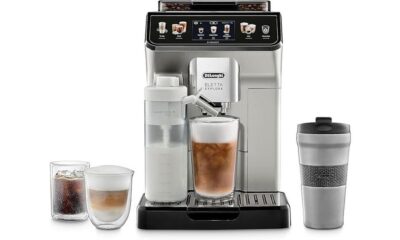
 Espresso Machines Reviews2 weeks ago
Espresso Machines Reviews2 weeks agoDeLonghi Eletta Explore: A Comprehensive Review [2025]
-

 Espresso Machines Reviews3 weeks ago
Espresso Machines Reviews3 weeks agoILAVIE 20 Bar Espresso Machine Review (2025)
-

 Espresso Machines Reviews3 weeks ago
Espresso Machines Reviews3 weeks agoSUMSATY Espresso Machine Review (2025)
-
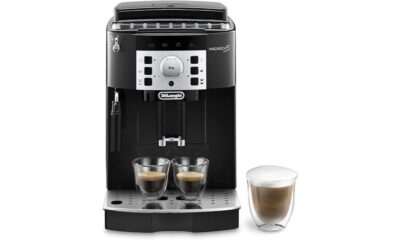
 Espresso Machines Reviews2 weeks ago
Espresso Machines Reviews2 weeks agoDeLonghi Magnifica S ECAM22.110.B Review: A Coffee Lover's Dream [2025]
-
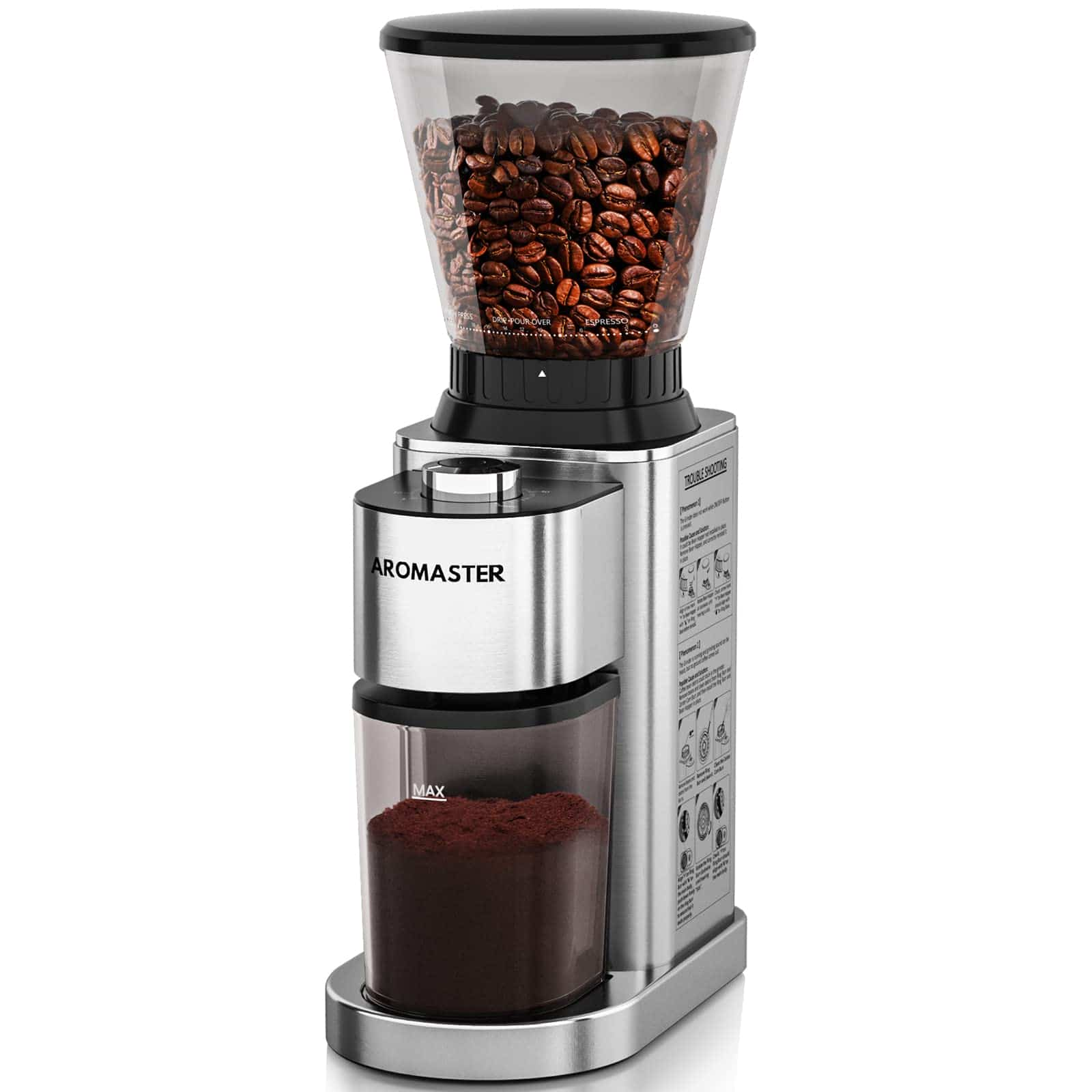
 Coffee Grinders Reviews3 weeks ago
Coffee Grinders Reviews3 weeks agoAromaster Burr Coffee Grinder Review (2025)
-

 Espresso Machines Reviews3 weeks ago
Espresso Machines Reviews3 weeks agoMAttinata Espresso Machine Review (2025)
-
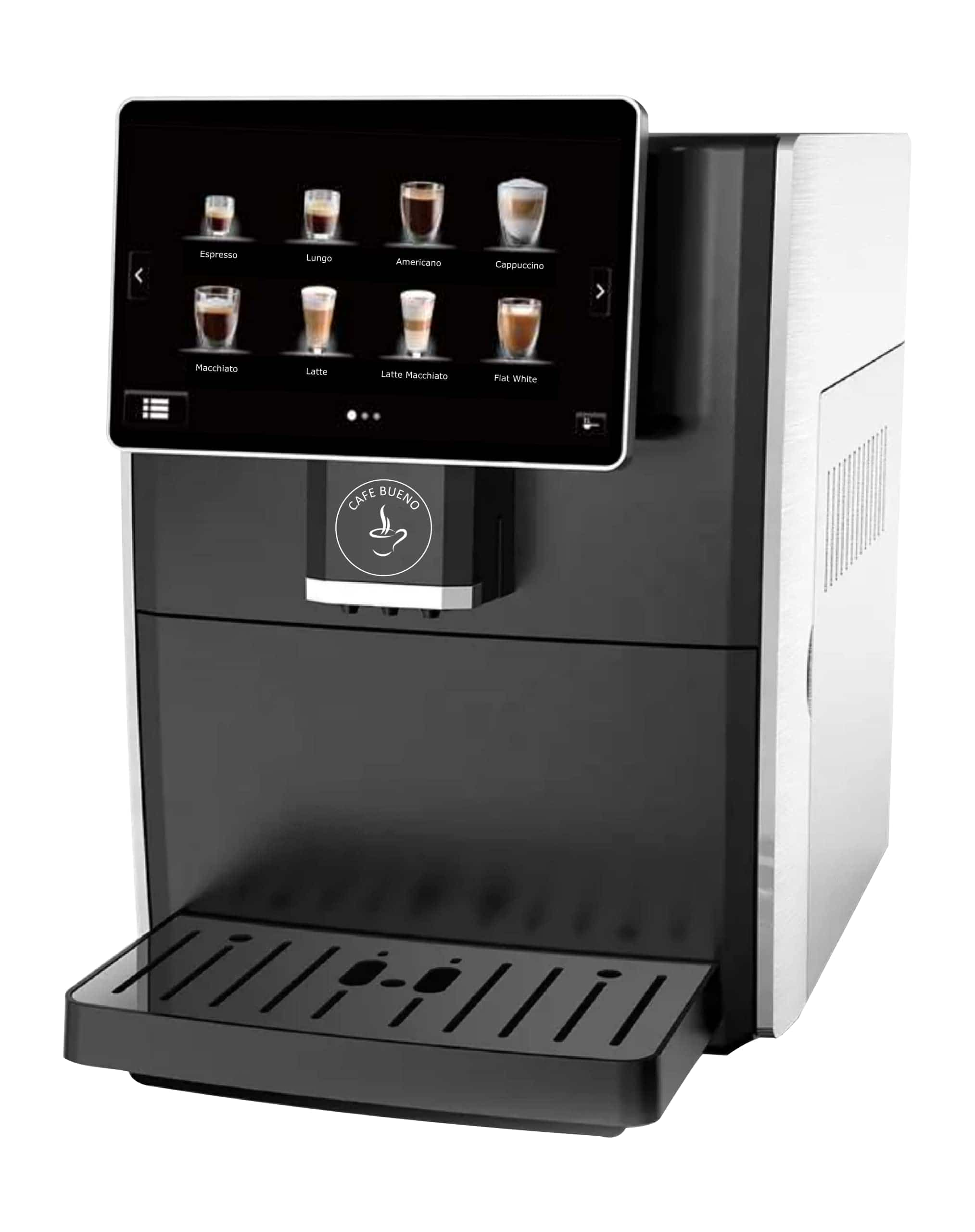
 Espresso Machines Reviews3 weeks ago
Espresso Machines Reviews3 weeks agoCafe Bueno Super Automatic Espresso Machine Review (2025)
-
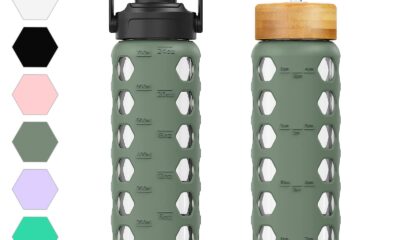
 Cappuccino Oracle Selected Reviews3 weeks ago
Cappuccino Oracle Selected Reviews3 weeks agoBest Glass Water Bottles for Eco-Friendly Hydration [2025]







